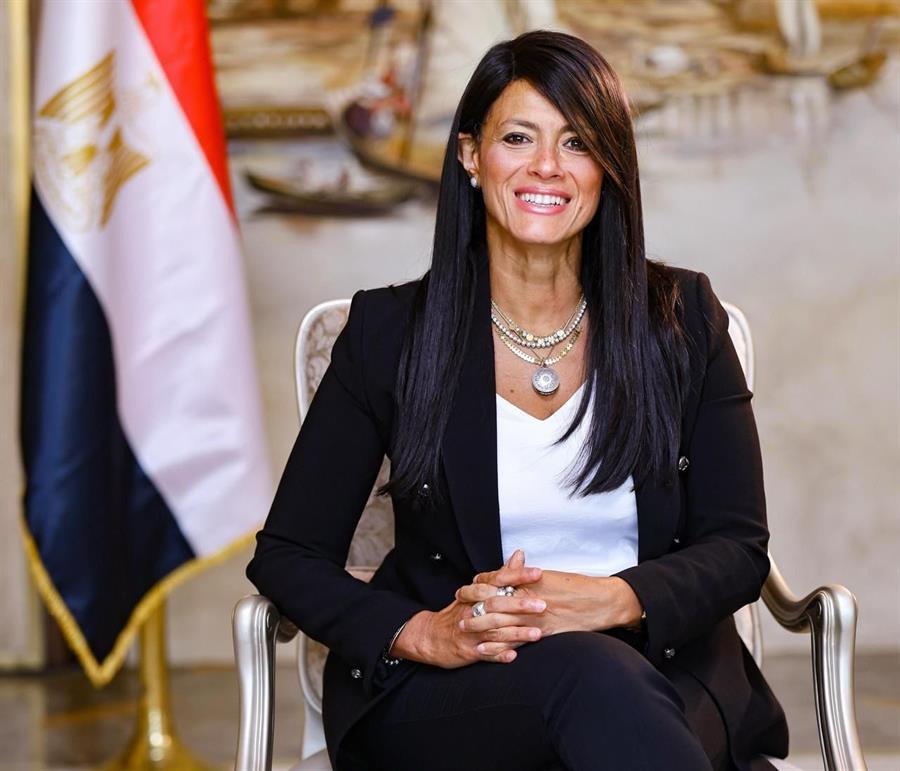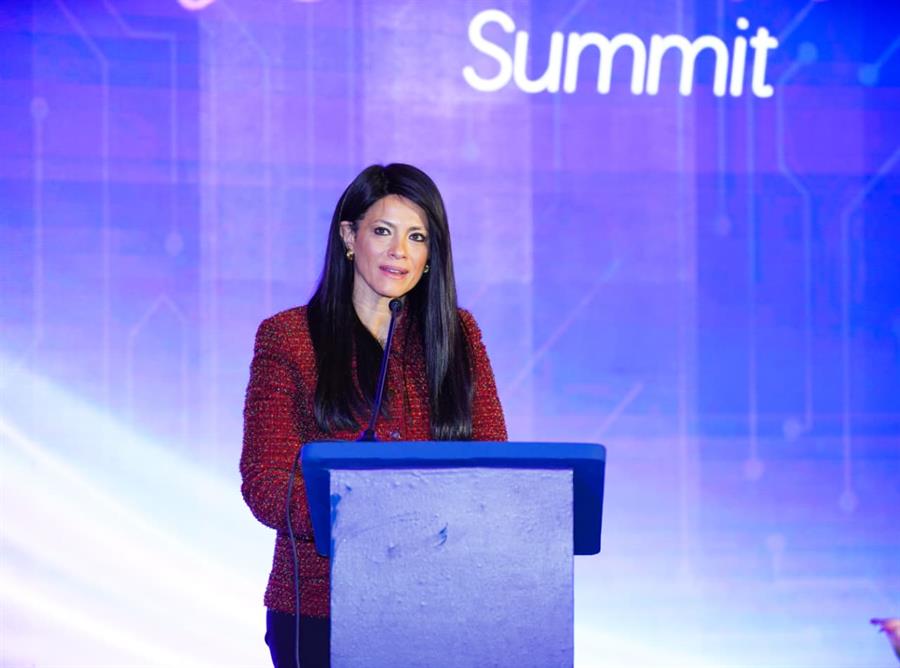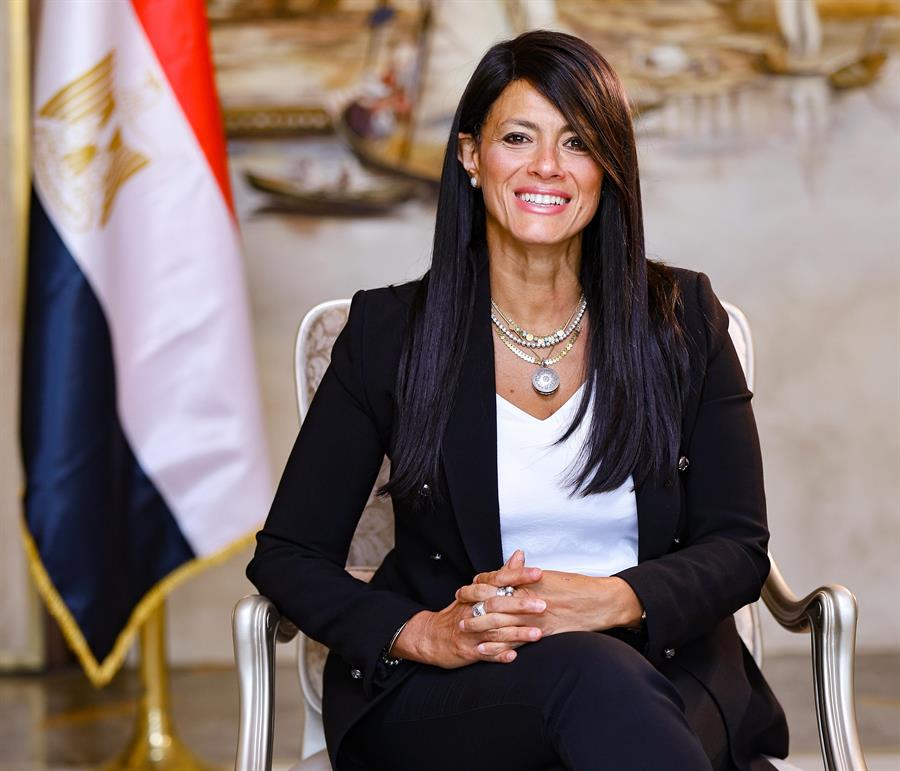Egypt’s Minister of Planning and Economic Development meets the UNDP Resident Representative

25 January 2022
H.E. Dr. Hala El-Said, Minister of Planning and Economic Development, met with Mr. Alessandro Fracassetti, Resident Representative of the United Nations Development Program (UNDP).
The meeting was attended by Sylvain Merlin, Deputy Resident Representative, Ms. Reham Youssef, Head of Policy and Partnerships at the UNDP, Dr. Ahmed Kamali, Deputy Minister of Planning, and Ambassador Hazem Khairat, Head of the Ministry's External Relations Office.
The objectives of the meeting were to welcome Mr. Fracassetti to assume the leadership of the UNDP office in Egypt, as well as to discuss ways of strengthening cooperation between the Egyptian government and UNDP.
El-Said expressed her welcome to Mr. Alessandro Fracassetti and looked forward to continuing cooperation and building on the strong foundation that was achieved during the tenure of Mrs. Randa Abul-Hassan, the former resident representative of the program between 2018 and 2021.
Al-Said indicated that the ministry looks forward to working with Mr. Fracassetti and the entire program team to support Egypt's core development priorities, including achieving the 2030 Agenda and implementing the Sustainable Development Goals.
El-Said reviewed the most important tasks of the ministry concerning both aspects of planning and economic developmentز
She noted the development of the long, medium, and short-term sustainable development plans and ensured consistency of implementation of sectoral strategies and plans with development goals.
El-Said added that one of the most important tasks of the ministry is also preparing the annual investment plan, evaluating the proposed investment projects for each party, and determining the allocation of its investment plan.
El-Said pointed out that the Ministry of Planning is working to diversify the sources of financing development plans and programs and stimulate partnership mechanisms with the private sector, civil society, and development partners to enhance financing for development.
About the economic development aspect, El-Said explained that the most important tasks of the ministry lie in formulating and following up the implementation of the national strategy for sustainable development (Egypt Vision 2030) in coordination with ministries and other partner agencies, in addition to following up on the implementation of the UN 2030 Agenda while ensuring consistency with Africa’s Agenda 2063.
The Ministry of Planning is also working on issuing periodic reports to assess indicators of the implementation of the sustainable development goals, the latest of which is the third voluntary national report that was presented at the United Nations High-Level Political Forum on Sustainable Development (UN HLPF).
On the cooperation between the ministry and the United Nations Development Programme, El-Said stressed the important role of the program is launching the Human Development Report in Egypt after a 10-year hiatus.
El-Said added that the United Nations Development Program is expanding the scope of the strategic partnership to support comprehensive and multi-sectoral crisis management and response in Egypt and to address the social and economic impact of COVID-19 in Egypt.
El-Said explained that the program, in coordination with the Ministry of Planning and Economic Development, recently organized a webinar entitled "The Future of Public Policy-Making in the Age of Big Data", in which national and international lecturers from government, the private sector, and academia participated.
El-Said also talked about the initiative for a Decent Life, stressing Egypt's commitment to accelerating the progress process.
She also highlighted that the initiative aims to develop sustainable rural communities by reducing poverty and multidimensional unemployment rates to improve the quality of life in the poorest Egyptian rural communities.
During the meeting, El-Said indicated that Egypt will host the 27th United Nations Conference on Climate Change in 2022 on behalf of Africa in Sharm El-Sheikh.
At the end of the meeting, El-Said indicated that Mr. Alessandro Fracassetti's mission in Egypt comes at an appropriate time, due to the government's readiness to launch the national project for the development of the family, as well as the implementation of the second phase of the main presidential initiative "A Decent Life".
El-Said stressed the aspiration to enhance cooperation with the United Nations Development Program in adapting to the new reality in light of the COVID-19 pandemic, as well as in achieving sustainable development goals and achieving the goals set in the projects of Egypt's Vision 2030 and a decent life.
For his part, Mr. Alessandro Fracassetti, the UNDP Resident Representative in Egypt, stressed his happiness to meet Dr. Hala El-Said, Minister of Planning and Economic Development, for the first time since he assumed his duties in the past weeks.
" We are proud of the partnership and close cooperation between the Ministry and the United Nations Development Program, which yielded many positive results and outputs, such as the issuance of the Human Development Report 2021, the acceleration of the implementation and settlement of the sustainable development goals, as well as facing the challenges of Covid-19," Fracassetti said.
"We look forward to continuing these efforts and expanding the scope of work, especially related to the "Decent Life" Initiative, which is a real and integrated opportunity to develop all Egyptian villages and improve the standard of living for millions of Egyptians," he added.









